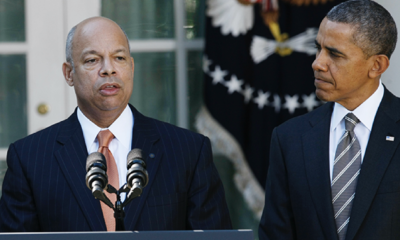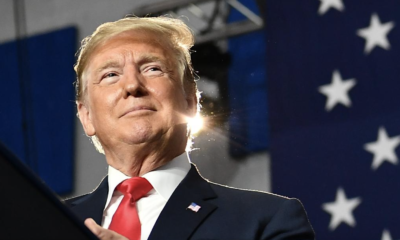Philosophical
Is Trump’s Anti-Politics Message the Main Reason for his Electoral Success?
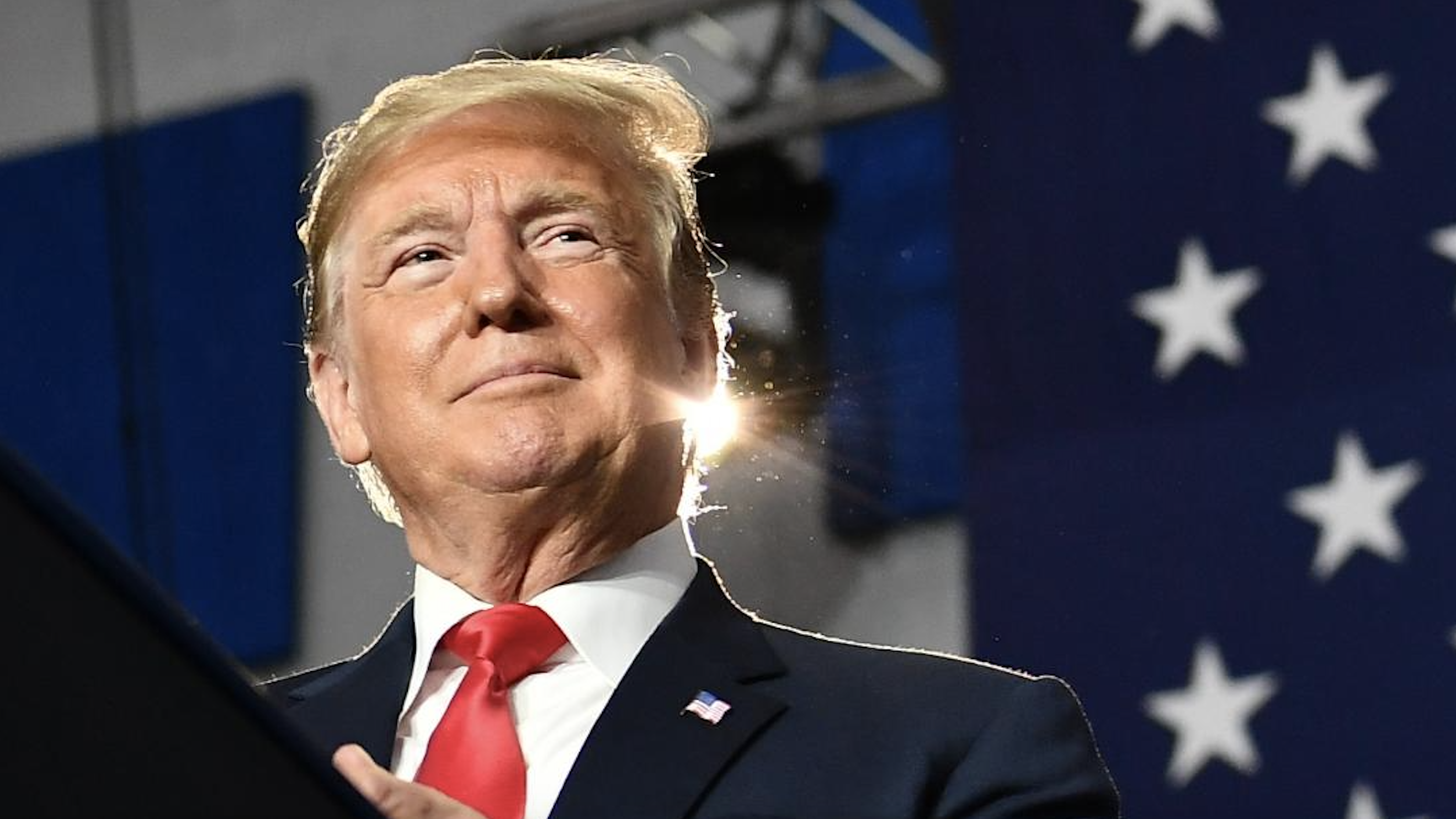
Introduction
It is the 2011 White House Correspondents’ Dinner. Comedian Seth Meyers and President Barack Obama make a mockery of a potential presidential candidacy for Donald J. Trump. Meyers says jokes like: “Donald Trump has been saying he will run for president as a Republican, which is surprising as I presumed he was running as a joke!”[1]Now, in July 2016, it is safe to say they are not laughing now. Donald Trump will walk into the Republican Convention in Cleveland knowing that he will be their nominee. He has won 41 primaries and caucuses and amassed an unassailable 1441 delegates. A newcomer to politics has won 890 more delegates than his nearest rival – Texas Senator Ted Cruz.[2]Against all odds, he beat 15 other candidates to win the nomination. Only one person now stands between him and becoming the leader of the free world and the most powerful man on Earth: Hillary Clinton.
Now, as a man who has described Mexicans as “rapists”[3], stands on the precipice of becoming the President of the United States, it is important to look at a few issues. Firstly, to look at the history of the type of politics Donald Trump is advocating. Next, we must explore whether or not he can be considered to be a populist and also whether some reports of his apparent narcissistic nature are true. The project will also look at the reasons why Donald Trump has been so successful, both in the Republican primaries, and also in the general election if he wins. This will consist of attempting to reach a judgement on which reason was the most significant in his election victory. This will mean it will be comparing Trump’s anti-politics methods, his successful manipulation of the US media, and the failings of other Republican candidates both in their policy stance and performance in the TV debates. This means that there will therefore be a decision of what factor played the biggest part in his success, and how, when all these factors come together, Trump’s success seems inevitable.
Furthermore, I will look at the eventual results of the presidential election and decide what the results mean not only for Trump, but also the effect they may have on populism and anti-establishment politics everywhere. For example, if we see a Trump victory in the election, we may also see a further continuation of unlikely victories for politicians riding the current anti-establishment wave. This started with the recent ‘Brexit’ vote, and may range from a Marine Le Pen victory in the French Presidential Elections in 2017, to a ‘No’ vote on the referendum on constitutional amendments brought by Matteo Renzi in Italy. A prediction on the future state of US politics and what a Trump administration will look like can also be made. It will undoubtedly be interesting to see if ‘candidate Trump’ would be the same as ‘President Trump’, or on the other hand, if Clinton wins, a prediction would still be made on what will happen to the volatility and hatred Trump has stirred up in US society.
Section 1: What is the history of Trump’s electoral strategy and populism in the United States?
Donald Trump is not the first politician to try and exploit a populist message in order to achieve public office. Indeed populism has a long history in the United States. In order to fully understand why Donald Trump has been so successful thus far, I need to explore the historical context of populism, and see if it relates to Trump.
In the 1890s, a group of farmers called for the introduction of an income tax, as well as the nationalisation of the railways. [4]This so called ‘Populist Party’ felt the government and Wall Street had abused the trust they had placed in them. They wanted to ensure that politicians responded to their needs. This is certainly very similar to what Trump has been doing with “Make America Great Again” – implying that the existing establishment are in it for themselves and don’t care about ordinary Americans.
Trump is also trying to employ a strategy used by other Republicans in the 20thCentury. Historically, Republicans struggled in the South due to the lingering memories of the civil war and hostility from white racists after Lincoln’s ‘Emancipation Proclamation’ which freed the slaves in 1863.[5]Furthermore, ending segregation and civil rights was a key message in the Democratic National Convention of 1948. This resulted in many southerners (traditional Democratic voters) turning away from the Democrats to the new ‘Dixiecrats’ – Dixie referring to the view of southern USA being called “Dixieland”. This meant that Strom Thurmond won 39 Electoral College votes in the 1948 election. [6]This marked the start of the breaking up of the New Deal Coalition which had dominated US politics since Roosevelt’s victory in 1932. In 1964, Republican Barry Goldwater – who was supported by Thurmond- attempted to exploit the unrest caused by the civil rights struggle, and with this “whitelash”, he won 55% of the white southern vote. He was the first Republican ever to win a majority of white southern voters, which helped to “transform the Republicans into the party of southern reaction.”[7] This focus on white racial concerns, however, did not perform well in the liberal north east. As a result of his candidacy, the Republicans lost 40 House members. It will be interesting to see if Trump’s rhetoric leads to Republican losses across the whole ballot.
Before Trump’s meteoric rise to success in this year’s Republican primaries, perhaps the most well-known ‘conservative’ was former Alabama Governor George Wallace. It is said that the modern era of populism in America began in 1968 with his candidacy. Wallace ran as a candidate for the American Independent Party. He was an avid supporter of the ‘Jim Crow’ Laws, racial segregation in public schools and was an outspoken white supremacist. Unsurprisingly, Wallace performed well in the Deep South. He won 13.5% of the popular vote, and carried 5 States – Georgia, Mississippi, Alabama, Arkansas and Louisiana. Furthermore, he has the biggest 3rdparty share of the Electoral College vote with 46.[8]It can be said that it was this success, combined with Goldwater’s victories in similar southern states that pushed the Republican Party towards wider acceptance of the new ‘southern strategy’, which exploited this same “Whitelash” against the civil rights reform that had existed in the late 1940s. It can also be argued that Trump is using this as a way to garner support in the south, against the influx of lots of Hispanic people into the southern states.
The Goldwater failure and lack of widespread support for George Wallace led to the start of the so-called Southern Strategy. Richard Nixon used this strategy to get elected in 1972. It could be said that this was an attempt to copy the New Deal Coalition that dominated US Politics from the 1930s, as the campaign involved using gentler vocabulary than George Wallace used, however there was still a racial undertone. This meant the strategy appealed to the Southern whites, but also appealed to the more liberal North.[9]The Republican strategist Lee Atwater, by then an operative in the Reagan White House, explained the essence of the “southern strategy” to an academic researcher:
“You start out in 1954 by saying ‘nigger, nigger, nigger’. By 1968, you can’t say ‘nigger’ – that hurts you. Backfires. So you say stuff like, uh, forced bussing, states’ rights and all that stuff. You’re getting so abstract now you’re talking about cutting taxes, and all these things you’re talking about are totally economic things and a by-product of them is blacks get hurt worse than whites.And subconsciously maybe that is part of it. I’m not saying that. But I’m saying that if it is getting that abstract, and that coded, that we are doing away with the racial problem one way or the other. You follow me – because obviously sitting around saying ‘We want to cut this’ is much more abstract than even the bussing thing, and a hell of a lot more abstract than ‘nigger, nigger’. ”[10]
This strategy of subtle but discriminatory politics obviously worked, as it delivered the White House to Republicans in five of the next six presidential elections. Clearly, populism has a long history in the United States, and it can also be argued that Trump is using this as a way to garner support in the south, against the influx of lots of Hispanic people into the southern states. With his policies of building the southern border wall and the complete shutdown of Muslims entering the United States, he is clearly playing to the deep-seated racism in the United States, as well as appealing to the northern ‘Rust Belt’ States, such as Wisconsin and Michigan, by promising to reopen coal factories and bringing back US industry.
Section 2: Is Donald Trump a Populist?
Michael Kazin – author of the “The Populist Persuasion” – describes populism as a “language whose speakers conceive of ordinary people as a noble assemblage not bounded narrowly by class, view their elite opponents as self-serving and undemocratic”.[11]This is certainly very similar to what Trump has been doing with “Make America Great Again” – implying that the existing establishment are in it for themselves and don’t care about ordinary Americans. Furthermore, when deciding whether to class Donald Trump as a populist, it is helpful to look at examples of other populists; both in the USA and also in other countries around the world. This is because, if Trump is going to be described as a populist, he would probably share some of the same characteristics that other populists around the world have, and try to exploit similar feelings, such as anti-establishment sentiments.
One politician who runs on a similar right-wing populist message is Marine Le Pen. She is the leader of the National Front in France. Her party achieved unbelievable success in the December 2015 regional elections; more than doubling its result from the regional elections held in 2010. [12]Furthermore, the far-right party won the popular vote in the 2015 European elections with 28%, beating its previous national record of 25% in European elections in 2014, and more than doubling its result in regional elections than which it won in 2010. So how has the National Front and Marine Le Pen achieved this somewhat unexpected success? The answer seems to be not so different to why Trump has seen electoral success in the American primaries – a focus on the disillusioned working class, who are frightened by the effects of globalisation and the perceived threat posed by Jihadist, or radical Islamic, terrorism. This is perhaps best shown by the fact that the National Front is now the most popular party among France’s working class, and also those who left school without qualifications – the “forgotten people of the republic”, says Ms Le Pen. It is interesting to note that during the 2016 United States election, Donald Trump has tried to appeal to this same demographic – predominately white, working class Americans who, perhaps incorrectly, think themselves to be in desperate need of someone like Donald Trump to put their needs first.
It is clear that the popular support of the populist right policies and beliefs are at a peak not seen since the Isolationism and Protectionism of the 1930s United States Government. So why is the case? The answer lies in the perceived threat posed by terrorists, most recently the so-called Islamic State. In Europe populists are already in power in Poland and Hungary, and in the governing coalition in Switzerland and Finland.[13]Support is at unforeseen levels in numerous countries – the National front top the polls in France and populists are also leading in the Netherlands. Their support is at record levels in Sweden. It is very likely Marine Le Pen will reach the second round of France’s presidential election in 2017 and there’s a chance she might win the run-off! The reasons for individual rises of populists across the continent will undoubtedly differ, but the “bedrock for them all is economic and cultural insecurity. Unemployment in Europe and stagnant wages in America hurt a cohort of older working-class white men, whose jobs are threatened by globalisation, and technology”[14]– which leads them to vote for politicians and parties who are inward looking, focused on protecting their own country, (rather than helping and supporting foreign countries, who are often stricken with civil war) and trying to revive dying industry. This is perhaps seen by a number of Trump’s campaign pledges to “bomb the sh*t out of ISIS”, criticising China’s economic growth and TNC’s outsourcing labour there due to cheaper wages, and attempting to revive the ‘Rust Belt’ as the centre of American industry. [15]
So is Donald Trump a populist? On the surface the answer seems it is an obvious yes. It is hard to argue that Trump hasn’t exploited the deep rooted racism in the United States and played to citizens’ fears by speaking in soundbites and bringing up policies which will undoubtedly be popular for them. However it is useful to explore this in slightly more detail. Donald Trump obviously ran as an anti-establishment candidate, (not so different to Bernie Sanders in the Democratic primary season, albeit a right-wing version) who uses his TV experience to create a populist appeal by speaking in soundbites, and his rambling unique oratory and rhetoric make him popular to the so called ‘ordinary’ Americans. However, why Trump has been successful in itself (which will be seen the next section) does not fully explain if he is a populist. As aforementioned, yes, Trump is a populist. This is because Trump expresses the one common trait to the populists mentioned before in this section – anger to and of the establishment, and the supposed snobbery shown by these to ordinary, ‘normal’ Americans. “He believes Americans have been betrayed by those elites”.[16]This makes Trump a populist because he says such controversial things in such a constant anti-establishment rhetoric, because he thinks that this is popular among the ordinary Americans, who think the federal government doesn’t have their interests at heart, and think only a complete outsider can rapidly shift the bureaucracy’s power and interests away from themselves and back to their views. It is therefore no wonder that Trump has introduced such pledges as ‘Drain the Swamp’[17], which includes refocusing Washington’s direction and upending the status quo. Therefore, as a result of Trump’s economic policies, attitudes to minorities and foreign countries, and the pledge to upend Washington, all comes to the conclusion that Trump is in fact a populist, and unusually, this populism is working, where normally it fails.
Section 3: Why has Trump been so successful?
In many ways, the reasons why Donald Trump has been successful (and indeed victorious) in the Republican primaries and caucuses, is similar to the evidence put forward in the previous section about whether it is right to describe him as a populist. In short that he appeals to a desperate white electorate who are frightened of the rapidly changing nature of the United States; are fed up the Republican establishment party and politicians who are perceived to have failed to address their needs, by focusing on the more affluent demographic.
Despite this, there are various reasons why people were flocking to the Republican Presidential nominee, namely his bluntness, the failings of the other Republican candidates, Trump’s manipulation of the media, and his masterful performance in the televised Republican debates throughout 2015 and 2016.
Trump’s rhetoric and language he used certainly is a key factor in his success. One of the things Trump has implied throughout the election campaign and all through his rallies is that people of colour and also women are less than fully human, and thus he is able to make offensive speeches attacking these groups. A good example of this is when he called women “dogs”.[18]This language used was abhorrent to the liberal media and a lot of more compassionate conservatives, however in ‘middle America’ in which many disaffected white men (and indeed women) are fed up with the liberal ‘political correct’ culture brought about the social media revolution, and thus when he said all of this they just brushed it off and thought ‘it’s just Donald being Donald’. This is rather unprecedented in presidential politics but this idea isn’t new as Republicans usually prefer to be a lot less explicit and blunt in when they play on the hidden racial hatred and misogyny that is plaguing the US generally. Perhaps this is also shown by the ‘southern strategy’ discussed in a previous section. As Stanford University professor Tomás Jiménez put it to the New York Times, Trump has turned the “dog whistle into an air horn”[19]. Mainstream Republicans may feign outrage at Trump’s bigotry and take the moral high ground, but bigotry has been paying the party’s bills for a long time. Trump is merely shouting explicitly what House speaker Paul Ryan and other leading Congressional Republicans imply with their opposition to the ‘wedge issues’ in America like immigration, fighting ISIS and radical terrorism and abortion. So therefore, the blunt, unforgiving rhetoric employed by Trump was definitely a reason in his success in the Republican Primaries.
Another reason why Trump’s message has resonated so much with the grassroots Republicans is in his successful manipulation of the media. From the moment he announced that he was going to announce his campaign, Donald Trump completely dominated air time and coverage on the major US news channels. A chart showing the amount of coverage given to Donald Trump is at 55.4%[20]. This is an exorbitant amount of ‘free’ media coverage. His nearest competitors are Marco Rubio with 10.2% and Jeb Bush with 10%. Is it any wonder Trump’s message among the most well-known across all candidates in this election when he clearly dominates the TV airwaves day in, day out? It is quite fair to say Trump is a master at playing the media, to his own advantage. As a reality star that has had lots of media coverage and contact for the media for the majority of his life, it is clear that Trump knows exactly what he is doing. The many years hosting ‘The Apprentice’ means he is a household name among vast arrays of America. This means that he had a huge advantage over the other Republican candidates immediately as whereas they were mostly low-key politicians only famous regionally, Trump had been blasting over the TV airwaves for years. His name-face recognition was probably only matched by his eventual opponent in the general election – Hillary Clinton. A result of him getting so much free media coverage is that he didn’t spend much of his own money on the ‘paid’ advertisements, that lesser known candidates like Marco Rubio and John Kasich had to. Furthermore, Trump exploited this name-face recognition to get even more airtime by speaking in soundbites. From the southern border wall, to the ‘total and complete shutdown’ of Muslim immigration, Trump successfully spoke in sentences that could easily be replayed dozens of times on the major TV networks. Trump knows that being overly controversial and not playing the ‘liberal’ PC culture, not only increases his appeal to conservatives, but also promotes discussion on TV, and increasingly social media. As a populist candidate he will know “there’s no such thing as bad publicity”, so when people are talking about the latest ‘outrage’ that he has come out with on the campaign trail, this will actually only increase his domination of the media. Therefore, it could easily be said that one of the main reasons why Trump has been so successful in this election season, is that he isn’t allowing other candidates to have a say in the election, as they don’t have anywhere near as much airtime as Donald Trump has had.
The final reason why Trump has found success from right wing voters is the failings in the Republican establishment and other candidates taking part in the primaries. It is important to note the huge apathy towards Hillary Clinton from the Republican establishment and grassroots, so it is inevitable that voters will support the candidate they believe to have the best chance of beating her. In the eyes of Republican voters, this may well be Donald Trump, which partly explains the level of support he is receiving – they may not like him but they really want to avoid a Clinton presidency. However, the Republicans themselves must take some blame for the rise of Trump. This certainly isn’t because of a lack of choice, there was initially 17 different candidates running, but they all had traits that Donald Trump exploited. This is that they are all parts of the establishment, and in a period when many in America wanted change, they found the ‘outsider’ in Trump attractive. Even Ted Cruz, who was disliked by most of the Republican establishment for his extreme social conservatism, was seen to be an ‘insider’ – perhaps due to his time as US Senator for Texas. Jeb Bush (brother of former President George Bush Jr) was initially the favourite for the nomination, and political ‘experts’ and pundits across the world were predicting a Bush v Clinton battle in the general election. However, things didn’t work out as expected, due to the fact that it was widely felt among voters that they were fed up the establishment and the same old, same old. Voters wanted change, so they flocked to Donald Trump instead. This was somewhat surprising, but it does highlight the level of anger residing among grassroots Republicans, and the feeling that established politicians don’t have their interests at the forefront. It is clear that the dislike of other candidates certainly played a part in helping Donald Trump in crossing the threshold in how many delegates he needed to clinch the nomination.
In order to answer the question of what the most significant reason in Trump’s electoral success, it would be helpful to see if he can pull off the seemingly impossible – overcome all the opinion polls and expectations and beat Hillary Clinton to the White House. If he does beat her, it shows that his anti-politics message, his manipulation of the mass media, and the apathy towards Clinton overcomes his controversy and shows Trump truly is an unstoppable force in American politics. However, it is also important to note that at this point in the election campaign; it seemed that Trump only had an outside chance of winning the White House, so his message and rhetoric appeared to be only able to take him so far. What happens next will either discredit Trump and his movement, or will shock the world and launch the US into uncharted territory.
Section 4: How and why did Donald Trump win the Presidency?
It wasn’t meant to go down like this. It was meant to be that on the morning of the 10thNovember, we woke up to the news that the first woman had been elected as President of the United States. It was inconceivable that someone as ‘racist’ and ‘xenophobic’ as Donald Trump could possibly beat the liberal elites’ favourite? One by one the key swing states that Trump needed to win – and that were presumed that Clinton would hold easily, due to polling data – fell into Trump’s column. This result punches a big hole through the heart of the American polling industry; they failed to even come close to the result. Firstly, it was the states such as Illinois and Indiana that were fairly predictable, but then at 10:23 EST a shock – Ohio was called for Trump. Nightmare scenarios started to come to the fore: surely this was a one off? Surely Florida would come to the rescue? Surely Pennsylvania (a state last won by a Republican in 1988[21]) could not be won by Trump? How could it be possible that Rust belt states would vote in such great numbers for the Republicans? These shocks on election night seemed unfeasible to many Democrats a few weeks before the election – so how and why did this happen?
The how is easy to answer, as it boils down to Trump concentrating his support and campaigning in key swing states, with large numbers of the voters his message played to. Therefore, he broke the blue wall that the Democrats have relied on for decades. With the victories in Michigan (16 electoral votes), Wisconsin (10 electoral votes), Pennsylvania (20 electoral votes and Ohio (18 electoral votes), Trump used his rhetoric on bringing manufacturing back to these regions – as well as playing on the resentment towards the federal government – to win votes here. The most obvious comparison to this is the Reagan-Democrats of the 1980s, who voted for him due to his promise to restore prosperity to the region. These states, as well as Florida, meant Trump reached an unassailable 306 Electoral College votes. The election was meant to be won by Clinton, as she had overwhelming minority support. The Hispanic demographic was meant to be the key to victory; however this key turned from race and ethnicity to class and working class, blue collar workers in the Rust Belt which put Trump over the edge
Trump’s anti-politics and anti-establishment message was certainly a major factor in his success, and this went hand in hand with the rhetoric used raging against globalisation. However, this isn’t the only reason Trump won, as there was major flaws with the Democratic Candidate – Hillary Clinton. Whereas Donald Trump is the ultimate outsider, with no political experience at all, Clinton has been in elected office for 30 years. She is often cited as the most qualified candidate ever to run for President, yet somehow lost to maybe the most un-qualified candidate? Unfortunately for Clinton, this vast array of political experience may have been her downfall. This is because after 8 years of gridlocked government under the Obama administration, (including the infamous federal shutdown of October 2013) voters wanted a change from the status quo. And who did the Democrats vote in as their candidate? Someone who is the embodiment of the establishment and everything wrong the federal government. Clinton oozed secrecy and untrustworthiness, which was highlight by the private email fiasco and the Benghazi scandal during her time as Secretary of State. It is therefore, not surprising that she was the most unpopular Presidential candidate in history – except for Trump! Furthermore, some aspects of the campaign may be said to have been performed better than Trump. Without a doubt, Trumps’ rallies had more enthusiasm and energy than Clinton’s, and whereas Trump’s campaign message – ‘Make America Great Again’ – is now infamous, Clinton had 3! This goes some way in explaining the lack of enthusiasm and lack of a clear message from the Clinton campaign. It might be said the only reason Trump won some states in the election was not because of his own strengths as a candidate, but because of the huge flaws and weaknesses in Hillary Clinton. It is clear that many Republican voters dislike Trump, with some doubting his credibility, or whether he was a true conservative, but they couldn’t bring themselves to vote Democrat – due to the deep hatred of Hillary Clinton.
Conclusion
So to what extent was Trump’s anti-politics message the main reason for his electoral success? It would be hard to argue that the anti-politics rhetoric didn’t contribute significantly to Trump’s victory, this is because in the atmosphere of change and hostility to the establishment running rampant across the United States, he was the right man at the right time. His ardent anti-immigration stance also played to his conservative base, and his southern border wall policy is a complete contrast to the policies pursued by the establishment recently. His economic populism played to the disillusioned Democrat voters in the Rust Belt states of Ohio, Wisconsin and Michigan and Pennsylvania. Despite this, it is clear the failings of the establishment candidate, Hillary Clinton, also played a part in his victory. However, without the anti-politics message, Clinton’s establishment ties may not have been exposed as much as they were, so anti-politics was the main reason for Trump’s victory.
The fact that Donald Trump, a man with no past political experience, and a man who alienated half of the US electorate, still managed to win the Presidential election says a lot about the state, and indeed anger, residing in the US population. It also opens the floodgates for right-wing populists, running on a similar anti-politics message, to gain power across the western world. We have already seen Matteo Renzi, former Prime Minister of Italy; resign after losing the crucial referendum on constitutional reform in December 2016. With the French Presidential Election polls becoming increasingly tight, it isn’t beyond the realms of possibility that we will see a President Marine Le Pen in 2017. Moreover, with Angela Merkel being criticised for her open migration policy in Germany, it is possible that her party will suffer big losses in the 2017 Parliamentary election. Because of the ‘Leave’ victory in the EU referendum back in June 2016, and that a populist has managed to win the US presidential election, nothing is now deemed as impossible. These victories mean that the neoliberal world order is threatened and that right-wing populism is once again on the rise throughout the western world.
Bibliography
Beaumont, H. (2015, December 12th). Eyes on the prize. Retrieved 29thJanuary 2017, from The Economist: http://www.economist.com/news/europe/21679832-marine-le-pens-party-regional-elections-are-just-stepping-stone-eyes-prize
Chotiner, I. (2016, February 24th). Is Donald Trump a Populist?Retrieved 2ndFebruary 2017, from The Slate: http://www.slate.com/articles/news_and_politics/interrogation/2016/02/is_http://www.slate.com/articles/news_and_politics/interrogation/2016/02/is_donald_trump_a_populist.html
C-SPAN. (2011, April 30th). C-SPAN: Seth Meyers remarks at the 2011 White House Correspondents’ Dinner.Retrieved December 12th, 2016, from Youtube: https://www.youtube.com/watch?v=7YGITlxfT6s&t=873s
D.M. (2016, July 4th). The Economist explains: Is Donald Trump a populist?. Retrieved December 20th, 2016, from The Economist: http://www.economist.com/blogs/economist-explains/2016/07/economist-explains-0
Eagle, P. (2015, November 13th).DONALD TRUMP: ‘I would bomb the s— out of’ ISIS.Retrieved February 2nd2017, from Business Insider: http://uk.businessinsider.com/donald-trump-bomb-isis-2015-11
Fountain, B. (2016, May 3rd). American crossroads: Reagan, Trump and the devil down south.Retrieved December 12th 2016, from The Guardian: https://www.theguardian.com/us-news/2016/mar/05/trump-reagan-nixon-republican-party-racism
Harrington, R. (2016, November 11th). Here’s what Trump means when he says ‘drain the swamp’ — even though it’s not an accurate metaphor. Retrieved February 2nd2017, from Business Insider: http://uk.businessinsider.com/what-does-drain-the-swamp-mean-was-dc-built-on-a-swamp-2016-11
Kazin.M. (1998) The Populist Persuasion, Cornell University Press, p.1
Levy, M. (2016, January 31st). United States presidential election of 1948.Retrieved 22ndDecember 2016, from Britannica: https://www.britannica.com/event/United-States-presidential-election-of-1948
Lind, M. (2016, September 3rd). Donald Trump, the perfect populist.Retrieved 8thDecember 2017, from Politico: http://www.politico.com/magazine/story/2016/03/donald-trump-the-perfect-populist-213697
Miller, M. (2015). Four Charts Show Media’s Love for The Donald — Vs. All Other Candidates Combined.Retrieved February 16th 2017, from IJR: http://ijr.com/2016/03/563541-one-chart-shows-just-how-much-media-attention-trump-gets-vs-other-candidates/
Politico (2017) 2016 Delegate Tracker Retrieved March 19th2017 from Politico http://www.politico.com/2016-election/results/delegate-count-tracker
President, D. J. (2015, June 16th). Donald Trump Presidential Announcement Full Speech 6/6/15 | Donald J. Trump For President .Retrieved 20thDecember 2016, from Youtube: https://www.youtube.com/watch?v=q_q61B-DyPk
Ross, J. (2015, August 8th). So which women has Donald Trump called ‘dogs’ and ‘fat pigs’? . Retrieved February 13th2017, from Washington Post: https://www.washingtonpost.com/news/the-fix/wp/2015/08/08/so-which-women-has-donald-trump-called-dogs-and-fat-pigs/?utm_term=.c5bbe92437f1
Tarnoff.B. (2016, November 9th). The triumph of Trumpism: the new politics that is here to stay. Retrieved November 21st2016, from The Guardian: https://www.theguardian.com/us-news/2016/nov/09/us-election-political-movement-trumpism
Dye, T. (1987).The Shaky Foundations of Democracy. In H. Zeigler, The Irony of Democracy(pp. 125-143). Monterey, California: Brooks/Cole Publishing Company.
[1]https://www.youtube.com/watch?v=7YGITlxfT6s&t=873s(quote approximately 12 minutes in)
C-SPAN. (2011, April 30). C-SPAN: Seth Meyers remarks at the 2011 White House Correspondents’ Dinner. Retrieved December 12, 2016, from Youtube
[2]http://www.politico.com/2016-election/results/delegate-count-tracker(March 2017) “2016 Delegate Tracker”
[3]https://www.youtube.com/watch?v=q_q61B-DyPk (quote approximately 8 minutes in)
President, D. J. (2015, June 16)Donald Trump Presidential Announcement Full Speech 6/16/15 | Donald J. Trump For President .Retrieved 12 20, 2016, from Youtube.
[4]The Economist (July 2016)(M.D) – http://www.economist.com/blogs/economist-explains/2016/07/economist-explains-0
[5]The Guardian (March 2016) (Fountain.B) https://www.theguardian.com/us-news/2016/mar/05/trump-reagan-nixon-republican-party-racism
[6]Britannica (January 2016) (Levy.M) https://www.britannica.com/event/United-States-presidential-election-of-1948
[7]The Guardian (March 2016) (Fountain.B) https://www.theguardian.com/us-news/2016/mar/05/trump-reagan-nixon-republican-party-racism
[8]Politico (March 2016) (Lind.M) http://www.politico.com/magazine/story/2016/03/donald-trump-the-perfect-populist-213697
[9]Thomas Dye & Harmon Zeigler (1987) from pp. 125-143
[10]The Guardian (March 2016) (Fountain.B) https://www.theguardian.com/us-news/2016/mar/05/trump-reagan-nixon-republican-party-racism
[11]Michael Kazin (1998, p.1)
[12]The Economist (December 2016) (Beaumont.H) http://www.economist.com/news/europe/21679832-marine-le-pens-party-regional-elections-are-just-stepping-stone-eyes-prize
[13] The Economist (December 2015) (Beaumont.H) http://www.economist.com/news/europe/21679832-marine-le-pens-party-regional-elections-are-just-stepping-stone-eyes-prize
[14]The Economist (December 2015) (Beaumont.H) http://www.economist.com/news/europe/21679832-marine-le-pens-party-regional-elections-are-just-stepping-stone-eyes-prize
[15]Business Insider (November 2015) (Engel.P) http://uk.businessinsider.com/donald-trump-bomb-isis-2015-11
[16]The Slate (February 2016) (Chotiner.I) http://www.slate.com/articles/news_and_politics/interrogation/2016/02/is donald_trump_a_populist.html
[17]Business Insider (November 2016) (Harrington.R) http://uk.businessinsider.com/what-does-drain-the-swamp-mean-was-dc-built-on-a-swamp-2016-11
[18]Washington Post (August 2015) (Ross.J) https://www.washingtonpost.com/news/the-fix/wp/2015/08/08/so-which-women-has-donald-trump-called-dogs-and-fat-pigs/?utm_term=.c5bbe92437f1
[19]The Guardian (November 2016) (Tarnoff.B) https://www.theguardian.com/us-news/2016/nov/09/us-election-political-movement-trumpism
[20]IJR (2015) (Miller.M) http://ijr.com/2016/03/563541-one-chart-shows-just-how-much-media-attention-trump-gets-vs-other-candidates/
[21]The Guardian (November 2016)( Smith.D) https://www.theguardian.com/us-news/2016/nov/09/how-did-donald-trump-win-analysis
Legal
Why the law should protect “true” vegans

Something very good happened at the beginning of this decade.
On the 3rd of January 2020, Employment Judge Robin Postle ruled in Norwich Employment Tribunal that ethical veganism is now a protected philosophical belief under the Equality Act 2010. The news of this judgment circulated all over the world in such an unprecedented fashion, than in three weeks they could be read in more than 1,200 websites from more than 60 countries.
Why? you may ask. Why people in Lebanon, Indonesia, Qatar or Peru are so interested in what happened in Norwich (while they may never heard the name of this Norfolk city before)?
The reason is simple. This was a “landmark decision” of international proportions. Arguably, veganism is one of today’s fastest growing international social movements, but yet it has not reached the “policy” stage yet anywhere in the world…until now. The Norwich judgment is the first of this kind in the world, and it does not refer only to my particular belief (as I am the Claimant who brought that case), or the belief of the English vegans, but to the concept of ethical veganism in general, which is essentially the “original” concept of veganism, as defined by The Vegan Society when it was formed in 1944. Therefore, if it is recognised in Great Britain as a belief which deserve as much protection as any other protected belief, religious or otherwise, surely it should be recognised elsewhere as well, as ethical veganism is the same anywhere (it doesn’t change with different cultural backgrounds), discrimination can occur anywhere, and anti-discrimination legislation should exist everywhere (although it doesn’t yet).
This judgment doesn’t change the law, or creates an actual new legal precedent, but what it does is legally recognises that when the Equality Act 2010 was enacted, and it protected non-religious philosophical beliefs as much as religions, it implicitly included among many the belief of ethical veganism, as this passes the test created by the Employment Appeals Tribunal in 2009. This test, coming from the Grainger plc v Nicholson case, created the following requirements a judge must confirm a non-religious belief has to fulfil to be protected under the act:
- the belief must be genuinely held;
- it must be a belief and not an opinion or viewpoint based on the present state of information available;
- it must be a belief as to a weighty and substantial aspect of human life and behaviour;
- it must attain a certain level of cogency, seriousness, cohesion and importance; and
- it must be worthy of respect in a democratic society, not be incompatible with human dignity and not conflict with the fundamental rights of others.
Judge Postle did confirm (using the words “overwhelmingly”) that ethical veganism fulfils all this criteria, and he also confirmed that I am an ethical vegan, and therefore my discrimination case based on this belief can now continue.
It is important to notice that this doesn’t mean that all those who define themselves as vegan would now be protected from discrimination, harassment and victimisation as are those who hold other protected characteristics (such as gender, age, marital status, religion, etc.). It will only protect “true” vegans. With this I mean, for one side, those who hold the belief genuinely and not just follow a temporary fashion or only “practice” the manifestation of such belief when it’s convenient to them. And for the other side, only those who follow the Vegan Society’s definition to the full, which means aiming to exclude, when practicable and possible, all forms of animal exploitation and cruelty to animals, not only those related to food production. Therefore, those who only follow a vegan diet but still want to wear clothes with animal products (such as wool or leather) or still want to visits zoos for entertainment, those are not “ethical vegans” even if they define themselves as vegan, so they would not be protected. Is this fair? I think it is, because I think society should protect more those who change their lifestyle to help others (animals suffering or the environment being destroyed) than those who only do it for themselves (to have a better health or look younger).
Ethical veganism is growing so fast because is a positive non-religious universal philosophy that tries to solve the most important problems we have in the world today: the trillions of animals that every year suffer from being unnecessarily exploited by humans, the catastrophic destruction of the environment (including global warming) caused by the animal agriculture industry, the hunger created by the waste of land and water used to raise animals for food and clothing, the severe health problems caused by the widespread consumption of animal products, and the legitimisation of abuse, exploitation and oppression as a form of progress . A society which allows to discriminate those who try to minimise their negative impact to the world, at the same time they try to help everyone else by providing a real practical solution to the world’s worse problems, is an outdated society with no foresight.
“True” vegans need protecting because unfortunately they are already discriminated, harassed, victimised, and hated by people who are blind to the real world’s problems and who are unwilling to share their privileges with those less fortunate. Those who after millennia of indoctrination think that others don’t’ matter, only they do, are ironically not from the Selfie and YouTube generation, but from the gladiators generation, the crusades generation, the witch-hunting generation, the foxhunting generation, and the factory farming generation. These outspoken institutionalised selfish “carnists” who are so triggered by the concept of veganism are who the law should be keeping “at bay” so ethical vegans can finally manifest their beliefs to the full without fear and worry, and in so doing freely attempt to significantly improve the world for next generations to come.
Surely, that is a good thing.
Legal
Reckless Transmission of Covid-19: A Jail Sentence?

With the death toll of the infamous coronavirus having recently surpassed 20,000, there is a real sense of fear propagating among the general public as to how best protect themselves, evidenced through the increasing sightings of shoppers kitted up in surgical masks. Just last week, a 57-year old man in Dudley, who claimed to be infected with Covid-19 and deliberately coughed at the staff in a local shop, was arrested under the Mental Health Act of 1983, which allows for someone to be ‘detained in the interests of his own health or safety or with a view to the protection of other persons’. However, during these extraordinary times, it may be interesting to consider whether the reckless transmission of Covid-19 could go beyond just detention by the police and indeed constitute a criminal offence. For, under section 20 of the Offences Against the Person Act of 1861 (OAPA), the unlawful infliction of grievous bodily harm (GBH) could result in up to seven years’ imprisonment. It must be emphasised, however, that while analysing the possible legal implications, it is important to bear in mind that the probability of possessing sufficient evidence of the transmissionof Covid-19 is highly limited.
Clearly, the first point for contention is whether Covid-19 can be said to constitute GBH, that is to say, the arguably ambiguous notion of ‘really serious’ harm established in DPP v Smith. Interestingly, it was ruled in R v Dica that this harm does not necessarily have to be a direct act of violence; the transmission of a disease, HIV in that case, could represent the causation of physical injury. As controversial as it may seem, therefore, prosecuting the unlawful transmission of disease in itself is not beyond the reach of the law. More strikingly, this harm does not have to be permanent or dangerous: it is up to the jury to decide the perceived level of harm done in reference to current societal norms. In reference to Covid-19, cynics may downplay the gravity of the harm given that the death rate lies at around 1%, but it is important to remember that this virus has the potential to befatal for some and so, in these cases, could indeed be seen as a really serious harm. As Weait convincingly argues, even if the physical harm of disease transmission is up for debate, the psychological harm of receiving a potentially life-threatening disease is one which the law ought to acknowledge. Therefore, it would be convincing to argue that, especially in cases where the affected has underlying health conditions or is in a greater threatened demographic, the transmission of Covid-19 could be viewed as a harm serious enough for the possibility of prosecution under the OAPA.
Of course, simply transmitting a disease alone is no criminal offence: just visualise that student who, the day before you picked up the flu, was sneezing incessantly at the back of the class, unpunished. More than just infecting you, it is necessary that the ‘infector’ show a degree of recklessness (the mens rea of the offence). As established in R v Parmenter, it is Cunningham (or subjective) recklessness which is applied under offences of GBH; this is the idea that the infector must have foreseen a risk of harm but decided to take the unjustified risk regardless. In relation to Covid-19, the jury would need to consider whether the actions of the defendant demonstrated such recklessness – whether that be, inter alia, through failure to self-isolate or, more overtly, unrestrained coughing directly at the victim. Undoubtedly, this concept of ‘recklessness’ is ambiguous and thus some feel that to criminalise this area is an example of the unnecessary pervasiveness of the criminal law, believing that only through greater education can we effectively reduce disease transmission. Moreover, it is almost impossible to ascertain what level of precaution would be needed to mitigate recklessness. Consider whether the defendant wearing a mask, as almost universally deemed ineffective by the WHO, would be sufficient. While this article aims neither to advocate nor oppose the criminalisation of disease transmission and acknowledges the uncertainty around the meaning of ‘recklessness’, it may theoretically be found that reckless transmission of Covid-19 could be within the grasp of the criminal law.
Nevertheless, in order to be reckless as to the transmission of the coronavirus, the infector would need to have relevant knowledge of their status. With access to satisfactory testing restricted and many being advised to simply stay at home if they display symptoms, it is often very difficult to know for certain whether you are infected. Hence, in order to be liable for reckless transmission, it is likely that your relevant knowledge would need to be a positive diagnosis with the virus. Having said that, the idea of requiring clear, incontrovertible knowledge is not universally accepted: Sullivan argues that wilful blindness could equivalate to actual knowledge, that is to say that if you were aware that it was very likely that you had the virus but decided nonetheless to behave in a reckless manner, then you could be liable. Although there is not concrete evidence of how a court would react in this scenario, in the unreported case of R v Adaye where a man was told by a doctor that it was very likely that he had HIV but refused to be tested, the court ruled that he could still be deemed as possessing the relevant knowledge. However, as argued by Ryan, this could result in unjust criminalisation given that the line between wilful blindness and actual knowledge can sometimes be very blurred. More relevantly, unlike with many of the prosecutions for the transmission of STDs, it has been suggested that some may have the coronavirus yet show no symptoms during the ‘incubation period’ or may even never know that they were infected. As you can see, it would be an uphill task trying to prove that the defendant knew of their status unless they had been positively tested. As a result, it would be naïve to suggest that you could be found liable for recklessly transmitting Covid-19 unless you positively knew of your status.
So, can I be prosecuted for transmitting Covid-19? Well, the law is not clear. While this article demonstrates that you could theoretically be prosecuted if you knowingly and recklessly transmitted the disease, it is not plausible to suggest that you would actually end up in jail. To prove that it was you who transmitted the disease, and not one of the other thousands infected, would be impractical and costly and so the prospects of being imprisoned are clearly almost zero. However, this pandemic serves to bring back to light wider questions about whether the criminalisation of disease transmission is beneficial for public health policy. Admittedly, this article only touches the surface and omits important situations such as the relevance of whether a family member consenting to the risk of transmission could negate an infector’s liability. Nevertheless, it aims to underline the necessity for governments to assess the most effective methods to control the spreading of the coronavirus. The wider question: is the criminal law the best one?
Legal
Giving nature human rights

Amidst an era of wide and profound natural degradation, Lake Erie, situated on the US-Canadian border, last week joined the growing list of natural sites worldwide granted the legal title of Personhood.
This move is an innovative conservation measure attempting to succeed where previous, more conventional, protections have failed. As the climate crisis and ever-increasing human encroachment and pollution drag the world’s most beautiful natural sites to the brink, many see expanding the breadth of legal personhood to include natural sites as the answer.
For decades, locals have observed the deterioration of Lake Erie with a mixture of dismay and exasperation. All other attempts to regulate the surrounding industries responsible for the mass pollution of the lake have failed. Perhaps a page has finally been turned.
Rampant run off from agricultural pesticides on the banks of the Lake is the main culprit for the immense algal blooms forming in the lakes. These ever-growing blooms of algae suffocate the lake, killing its fish and plant life. Furthermore, the lake is the main source of drinking water for hundreds of thousands of people who have seen its quality get gradually worse so that today it is borderline toxic. A radical approach to tackle all this was clearly necessary.
Though the first of its kind in North America, the creative legal move has already been implemented in various areas across the globe. Chief among these is the Whanganui River in New Zealand. Ruthlessly exploited for over a century, in 2017 the New Zealand parliament voted to pass legislation conferring legal personhood on the river, declaring it an indivisible, living whole possessing “all the rights, powers, duties, and liabilities” of a legal person.
This move was long-overdue in the eyes of the local Maori people who have always considered the river, the principal source of life for their community, a living being worthy of equal, if not superior, respect as a person. The decision was taken not only to protect a universal site of natural beauty and source of life but also for political reasons. It came as part of a broad governmental initiative to “atone for [the state’s] past wrongs and begin the process of healing”. In so doing, it was made clear that this was more than just a conservationist measure but also an attempt to come to terms with a brutal past filled with shameful exploitation and human atrocities.
This progressive sentiment from the New Zealand government is hugely encouraging for indigenous rights activists and environmentalists worldwide but is still a highly radical exception among the settler colonial nations. Though it is still a far-flung dream to imagine the US ever expressing such historical remorse or desire to make amends, more than ever under the current administration, the legal move at Lake Erie is nevertheless a hugely encouraging step forwards in recognising man and nature’s interconnectivity.
Gerard Albert, chairman of the Whanganui tribal collective, welcomed the “recognition that the river is the indivisible and living whole of Maori understanding and not the fragmented, inanimate components… that has been the European approach.” This touches on the belief held not only by the Maori but by many indigenous groups worldwide, of the interconnected relationship between man and nature. One of mutual respect, obligation and responsibility and one gaining more mainstream attention across the western world. Thanks to Extinction Rebellion and other climate justice movements, this quasi-animist belief is, for the first time, gaining traction in the capitalist societies of the West. The significance of this cannot be understated. It is in great part the western belief, stemming from a particular Christian biblical interpretation, that nature is man’s dominion to shape and plunder as he so wishes that has led the world to the ecological brink.
It is still to be seen whether these new legal measures will hold up when challenged. They are yet to be tested in their respective legal system and may well prove toothless again conventional legal attacks. Indeed, it is not yet known the scope of the new move. For example, will a river be able to sue a corporation polluting its water with toxic waste? As yet, no one really knows. Only time will tell the true significance but what is for sure is that affording legal Personhood to nature is an innovative move worth trying in a world that requires protection as never before.
-

 Legal2 years ago
Legal2 years agoHow we can defend and protect rights in the time of Coronavirus (COVID-19)
-

 Legal2 years ago
Legal2 years agoLook at Afghanistan; why human rights are inextricably linked with the rule of law
-

 Legal3 years ago
Legal3 years agoThe right to protest in a Covid-19 era
-
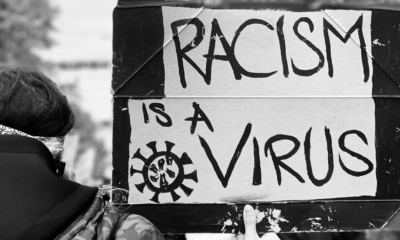
 Legal3 years ago
Legal3 years agoA Public Health Approach to Tackling Racism
-
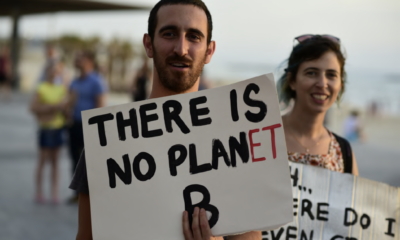
 Legal3 years ago
Legal3 years agoA Runaway Decision? Discussing and Defending R (Plan B Earth) v Secretary of State for Transport
-
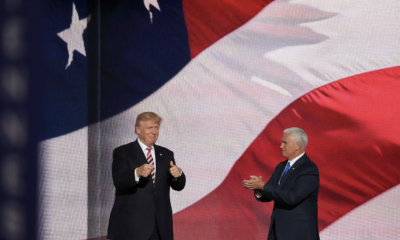
 Legal3 years ago
Legal3 years agoTrump: the most prolific execution President in over 130 years
-

 Legal7 months ago
Legal7 months agoIs unjust enrichment really concerned with enrichments?
-

 Economic3 years ago
Economic3 years agoWhat is the Rule of Law and What Difference Does it Make?






